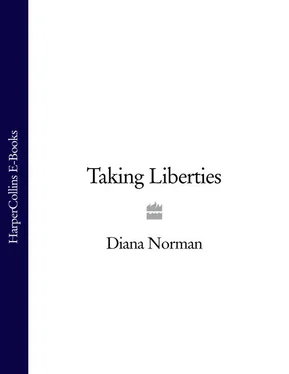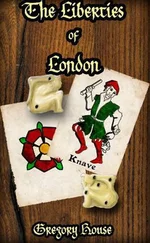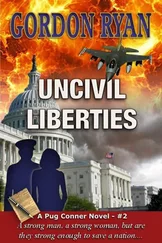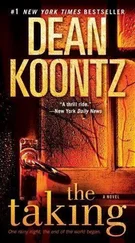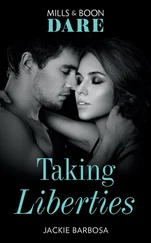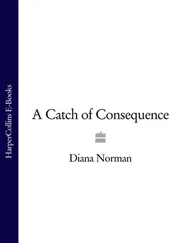When had she taken the decision to act upon Martha’s request? Why had she taken it? To outrage her family in revenge for a niggardly pension? Not really. Because of the picture Martha had tried to draw of her son? If she understood it aright, Lieutenant Grayle had a physical likeness to his maternal uncle.
An image came to her of Martha’s brother, a young man in a rowing boat pulling out to sea with easy strokes, head and shoulders outlined against a setting sun so that he was etched in black except for a fiery outline around his head.
Dead now. He’d joined the navy and one of Martha’s letters had told her he’d been killed aboard the Intrepid during the battle of Minorca in 1756. She’d put the mental image away, as with the other memories of her Devon summers, but its brightness hadn’t faded on being fetched out again.
His nephew had ‘such a desire that all may have Liberty’, did he? Well, she might enjoy some liberty for herself while procuring his. It would give her purpose, at least for a while.
But, no, that even hadn’t been the reason for her decision. It was because she owed Martha. For a happiness. And the debt had been called in: ‘… as you too have a son …’ Because Martha agonized for a son as she, in a different way, had agonized for hers. Perhaps she need not fail Martha’s son as she had failed her own.
Then she stopped rummaging through excuses for what she was going to do and came up, somewhat shamefully, with the one that lay beneath all the others, the one that, she realized in that second, had finally made up her mind.
Because, if she didn’t do it, she’d be bored to death.
She stepped out from the arbour into sunlight and walked across the lawn towards the house to tell Joan to begin packing.
Two hundred and fifty miles north of Chantries, Makepeace Hedley was also about to receive a letter from America. Since it had been sent from New York, which was under British control, its voyage across the Atlantic had been more direct, though no quicker, than that of the one delivered to the Countess of Stacpoole the day before.
As with most of Newcastle’s post, it was dropped off at the Queen’s Head by the Thursday mail coach from London and was collected along with many other letters by Makepeace’s stepson, Oliver Hedley, on his way to work.
Further down the hill, Oliver stopped to buy a copy of the Newcastle Journal at Sarah Hodgkinson’s printing works.
‘Frogs have declared war,’ Sarah yelled at him over the clacking machines, but not as if it was of any moment; the news had been so long expected that she’d had a suitable editorial made up for some weeks ready to drop into place in the forme.
Oliver read the editorial quickly; its tone was more anticipatory than fearful. Wars were good for Newcastle’s trade in iron and steel, and mopped up its vagrants and troublemakers into the army. True, the presence of American privateers, now to be joined by French allies, meant that vessels sailing down the east coast to supply London’s coal were having to be convoyed but, since the extra ships were being built on the Tyne and Wear, it was likely that the area’s general prosperity could only increase.
Nevertheless Oliver detected a note of uneasiness in the editorial. It spread itself happily enough on the subject of French perfidy but was careful not to cast similar obloquy on the cause the French were joining. The Frogs were an old enemy and if they wanted war Newcastle was happy to oblige them. America was a different matter – on that subject the town was deeply divided. Indeed, when the proclamation of war with America had been read from the steps of the Mansion House two years before, it had been greeted with silence instead of the usual huzzas.
A strong petition had been sent to the government by the majority of Newcastle’s magistrates offering support in the prosecution of the war but the burgesses, under Sir George Saville, had sent an equally strong counter-petition deprecating it. And Sir George was not only a popular man, he was also an experienced soldier.
‘It’s civil war,’ he’d told Oliver’s father, ‘and no good will come of it. For one thing, we can’t maintain a supply line over three thousand miles for long.’
‘For another, it’s wrong,’ Andra Hedley had said.
At that stage, the majority of Americans would have forgone independence – indeed, still regarded themselves as subjects of King George III – for amelioration of the taxes and oppressive rules of trade which had caused the quarrel in the first place. ‘But they’ll not get it,’ Andra had prophesied. ‘The moment them lads in Boston chucked tea in t’harbour, Parliament saw it as an attack on property and yon’s a mortal sin to them struttin’ clumps. No chance of an olive branch after that.’
And he’d been right.
Oliver put the mail and the newspaper in his pocket as he went down the hill in his usual hopscotch fashion to keep his boots from muck evacuated by mooing, frightened herds on their way to the shambles. Under the influence of the sun, which was beginning to roll up its sleeves, the strong whiff of the country the animals brought with them would soon be overlaid by the greater majesty of lime, smoke, sewage and brewing. Coal- and glassworks were already sending out infinitesimal particles of smitch that, without the usual North Sea breeze – and there was none today – would add another thin layer to the city’s dark coating.
He hurried past new buildings noisily going up and old buildings equally noisily coming down, past clanging smithies and factories, past street-traders and idlers gathered round the pumps, all of them shouting. Weekday conversations in Newcastle-upon-Tyne had to be conducted at a pitch which suggested deafness on the part of those conversing. A lot of them were deaf, especially those (the majority) who spent their working lives in its foundries, metal yards and factories with their eardrums pounded by machinery that roared day and night. Consequently, they shouted.
Clamour reached its climax at the river, Newcastle’s artery. Cranes, coal rattling into the cargo holds of keels, ironworks, shipyards, anchor-makers … But, as he walked along the Quay, the cacophony assaulting Oliver’s ears was overridden by his stepmother’s high, feminine, gull-like squawk twisting through it like a Valkyrie swerving through battling soldiers to reach the dead.
There was always something. Today a careless wherry carrying pottery upriver had knocked into one of Makepeace’s keels and caused damage – luckily above its waterline.
She was staving off the wherryman’s murder at the hands of the keel’s skipper by holding back the keelman with his belt and remonstrating with the offender at the same time.
‘Whaat d’ye think ye’re playin’ at, ye beggor, tig ’n’ chasey? Ah’ll have ye bornt alive, so ah wull. Howay ta gaffor an’ explain yeself, ye bluddy gobmek. Hold still, ye buggor’ – this was to the keelman – ‘divvn’t Master Reed telt ye ‘bout tuen the kittle?’
Oliver shook his head in wonder. Tyne watermen were renowned for their ferocity; this skinny little woman was dealing with savages in their own language and subduing them. While a new spirit of philanthropy was bringing charity, education and Sunday schools to Newcastle it had seemed impossible that such enlightenment could touch the dark souls of those who worked on its river. His stepmother, however, had forced the men who shipped her coal to join a benefit society, the Good Intent, where godliness, rules and, in the last resort, fines were having a favourable effect on their swearing, drinking and fighting. The popular Newcastle maxim that keelmen feared nothing except a lee shore had been altered to: ‘Nowt but a lee shore – and Makepeace Hedley.’
Читать дальше
